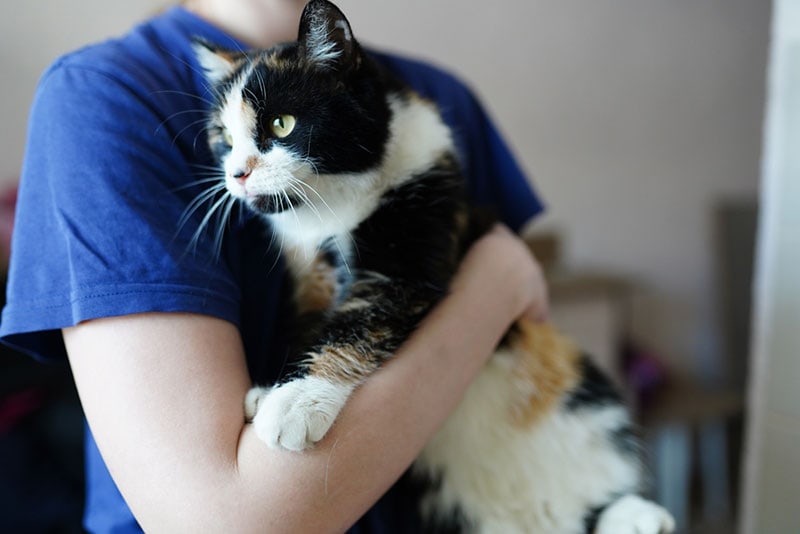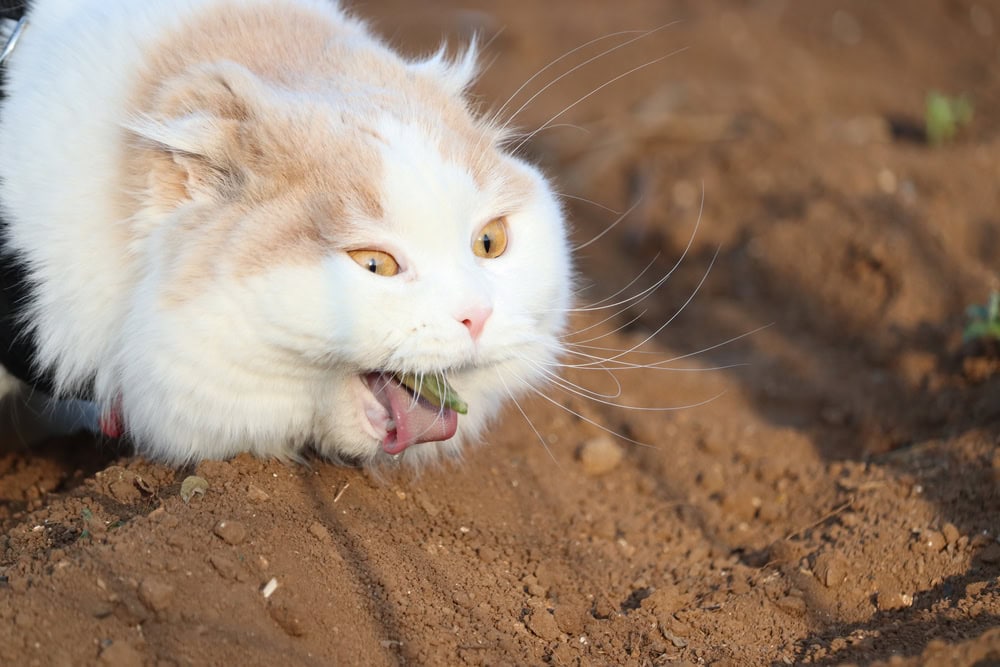Do Sibling Cats Mate? Vet-Approved Facts & Prevention Tips

Updated on
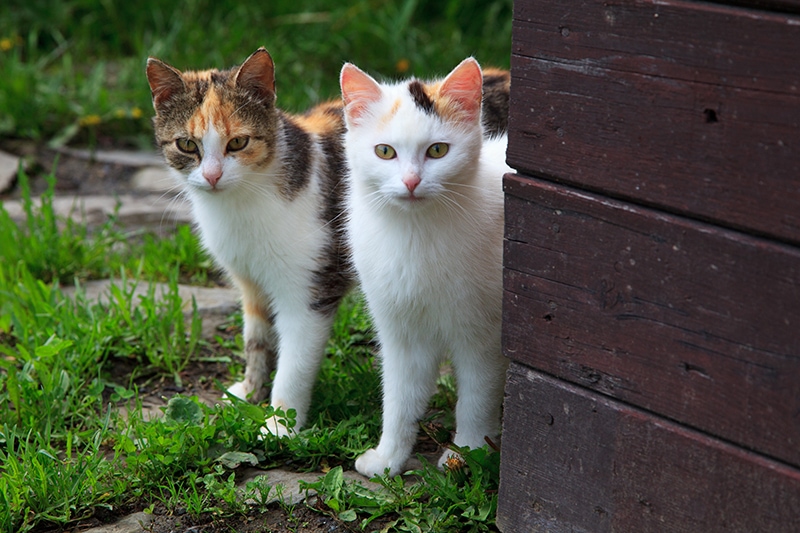
Click to Skip Ahead
Most people are curious to know whether cats can mate with their siblings. In human societies, incest and inbreeding are considered immoral; however, sexual deviancy is not an issue in the feline world. Any sexually receptive cat is considered a potential reproductive partner. This is why sibling cats living together are bound to mate.
In this article, we will discuss why sibling cats mate and if they can have kittens. We will also highlight the negative consequences of in-breeding and how to prevent it.
Do Cats Mate With Their Siblings?
As perplexing as it may seem to humans, cat siblings can mate with their siblings, also known as littermates, as soon as they reach their reproductive cycles. Sibling mating is more common in feral cats.
Granted, sibling cats may have grown and matured together from the first day. However, they do not consider each other as siblings but rather as playmates. So, when they achieve sexual maturity and the females get into heat (the estrus cycle), their body chemistry prompts them to mate. They won’t mind making young ones with each other because they are driven by instinct. This breeding process is known as inbreeding.
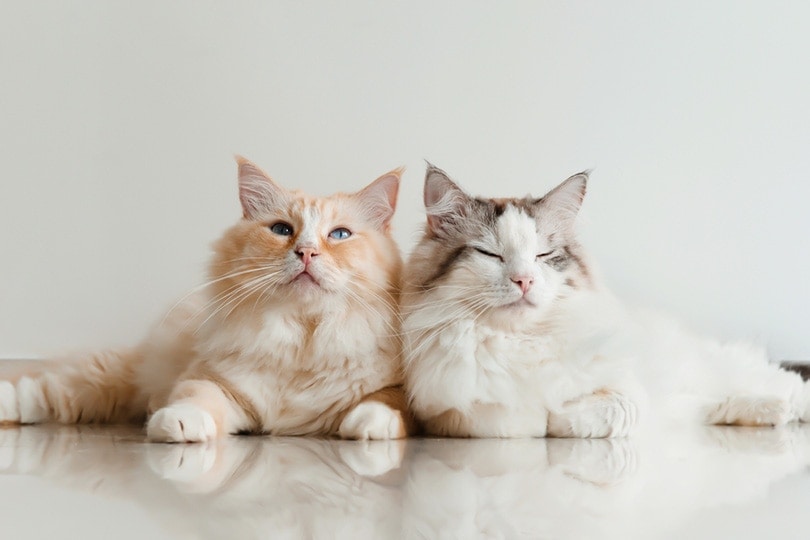
What About Half Siblings?
Just as they do with their littermates or first siblings, cats also breed with half-siblings. This is a common type of breeding practiced by many breeders the world over. Cats do not necessarily pick their mates. Instead, they do it instinctively and many times end up mating with their littermates or other relatives, which is very normal for cats.
However, sometimes breeders breed third-degree relatives on purpose in a process referred to as line breeding. This breeding method is considered less risky than inbreeding, and it increases the chances of getting a breed with desirable genes.
Line breeding may also have some negative consequences, but the risks are lower than inbreeding.
When Sibling Cats Mate, Can They Have Kittens?
Now that you know sibling cats can mate, can they have kittens? The answer is simply yes; mating sibling cats can have kittens. However, both should have reached the age of maturity and be fertile.
Kittens reach sexual maturity at around four months. Unfortunately, a cat’s conception at four months old is unhealthy because they are usually too young and not properly developed.
Therefore, you must be extra careful if you intend to keep a litter of kittens. Alternatively, you can have them neutered to reduce inbreeding which can have many negative consequences.
Negative Consequences of Inbreeding
Even though it’s not guaranteed, sibling mating most often leads to negative breeding consequences. If you inbreed your cats purposely, the following can happen:
Health Issues
A study done on feline fertility indicates that inbreeding can significantly affect a cat’s overall well-being. Inbred cats are more prone to genetic defects and health issues than purebred felines of the same breed.
In that regard, short-legged cats, like Munchkins, are more prone to hip dysplasia, joint problems, and even kidney problems. On the other hand, flat-faced cats, like Persian cats, are more prone to respiratory problems.
Physical Deformities
Even though it’s not guaranteed, the chances of physical deformity issues are higher among inbred kittens compared to purebred kittens. Common deformities include a crooked nose, a stumpy tail, misaligned jaws, short legs, a deformed thorax, and even abnormal eye symmetry.
Eventually, all these deformities usually lead to health complications that can make a cat’s life very difficult.
Weak Immune Systems
One major characteristic of inbred cats is a weak immune system that leaves cats vulnerable to infections and other related problems.
A lack of genetic diversity is actually what causes an increase in the possibility of developing autoimmune disorders and a weaker immune system in a cat.
Cats suffering from immune deficiency are generally vulnerable and weak. They are likely to experience difficulties as they try to fight off infections or diseases. Normally purebred cats don’t experience such difficulties.
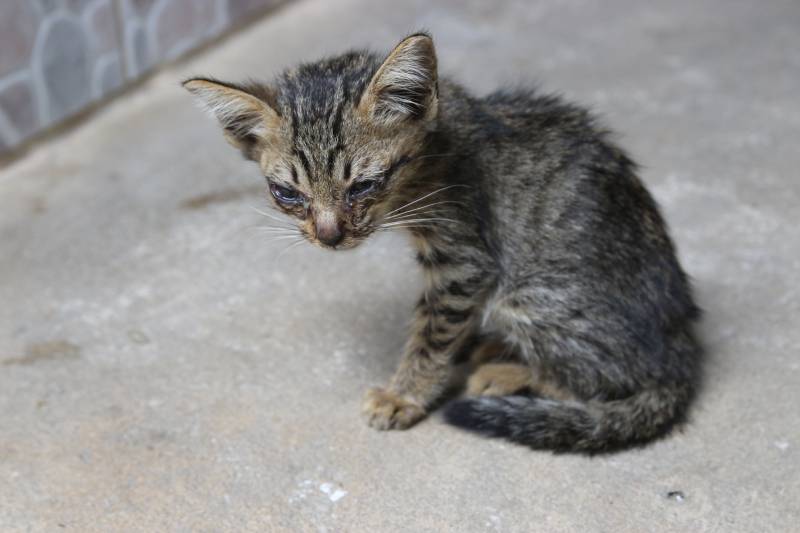
Genetic Abnormalities
The different abnormalities witnessed in cats could be a result of inbreeding. This situation is commonplace, especially in households where inbreeding and overbreeding are combined. Most often, inbreeding leads to fertility issues such as smaller litters, increased mortality rates, increased neonatal illnesses, and even the failure to conceive.
Additionally, inbred kittens tend to be smaller than the normal purebred healthy cats from the same breed. They are also prone to congenital abnormalities and drastic weight loss, conditions that may worsen over time.
Behavioral Issues
The health and appearance of inbred cats may appear okay, but they are likely to have behavioral issues as they grow up.
Inbred cats have a tendency toward fear and aggression. With these behavioral issues, they are usually more difficult to train and may have a harder time socializing with other cats.
How to Prevent Inbreeding/Linebreeding
As you may have gathered by now, inbreeding and linebreeding can have negative consequences on a cat’s life. Fortunately, preventing inbreeding among cats can be quite easy. Make sure to keep a closer eye on your furry friends, especially during the mating season.
Yet, preventing sibling mating of feral and stray cats can be more difficult, and one may need to consult a professional for assistance.
To get a healthy batch of litters and prevent inbreeding and linebreeding, here is how you can go about it.
1. Neuter/ Spay Your Cats
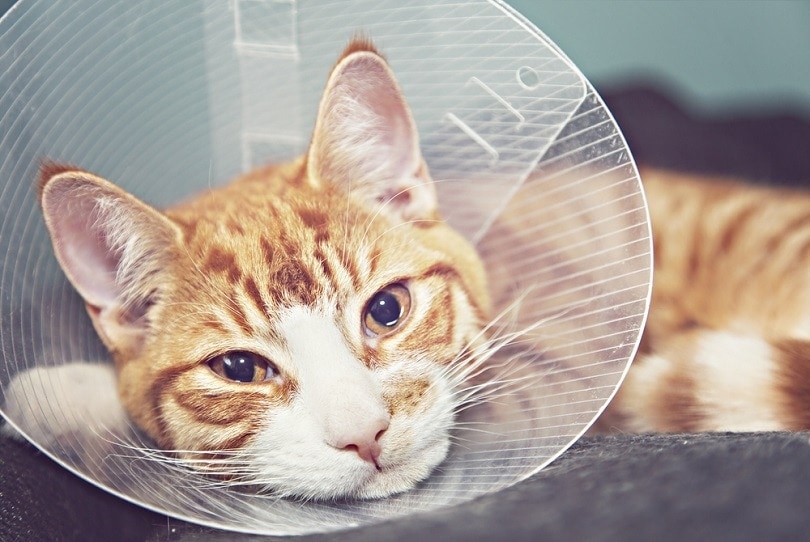
This is the best way to prevent inbreeding and linebreeding in your feline friend.
According to the American Veterinary Medical Association (AVMA), spaying involves removing a cat’s uterus, ovaries, and fallopian tubes. This hampers the cat’s reproduction ability, eliminates heat cycles, and generally reduces breeding-related behavior. Neutering, on the other hand, is a procedure involved in surgically removing testes from a male cat, thus eliminating the chances of reproduction and reducing breeding-related behavior.
The best time to neuter/spay your cat is when it has reached at least five to six months of age. This is when cats are fully mature and ready to mate. However, you can neuter/spay a cat at any age.
2. When in Heat, Isolate Your Cats
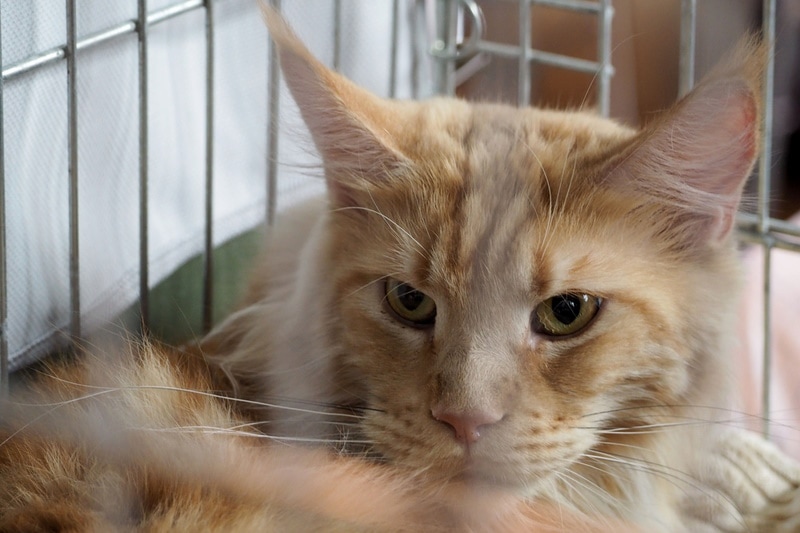
If you are not able to neuter to spay your indoor cats, consider isolating them while on heat. It may sound easy, but it can be very frustrating. Unspayed females or going through the heat cycle still display breeding-related behavior. This means during the isolation period, your cats will be extra loud, meowing excessively, and scratching your furniture.
The best solution is to ensure that you have enough space to separate your cats.
3. Adopt Same Sex Siblings
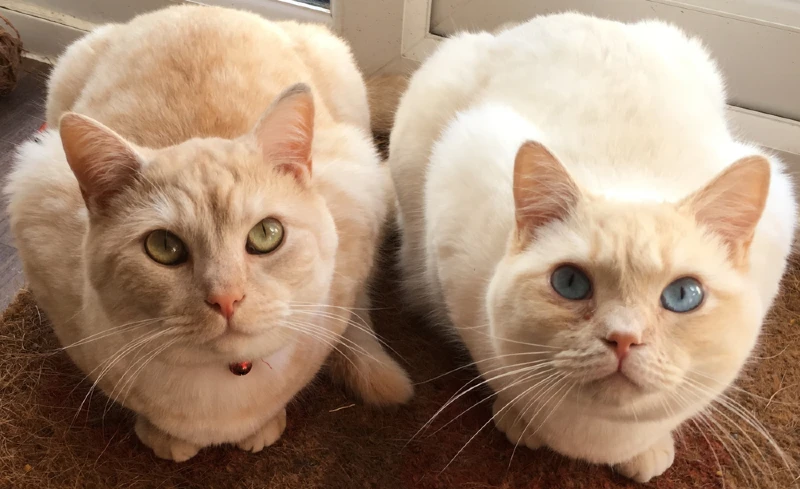
This is perhaps the most practical solution to inbreeding. If you plan to adopt more than one cat, it would be best to get two siblings of the same gender. This way, they will not be able to reproduce, and inbreeding will not occur.
Conclusion
Many people are intrigued to find out if sibling cats can mate. To understand a cat’s mating habits, keep in mind that they have no concept of incest. They are driven by their instincts when on heat during the mating season. They don’t choose who they mate with, and siblings are fair game, if they have reached sexual maturity.
Unfortunately, inbreeding/linebreeding tends to have negative health consequences. So, try to minimize sibling mating by isolating your cats during mating season, neutering/spaying them, or simply adopting same-sex siblings.
Related Read:
- Can Cats Be Gay? Behavior, Reasons, & FAQ
- Do Cats Remember Their Siblings? Facts & How to Help Them Settle In
Featured Image Credit: Jumpstory





